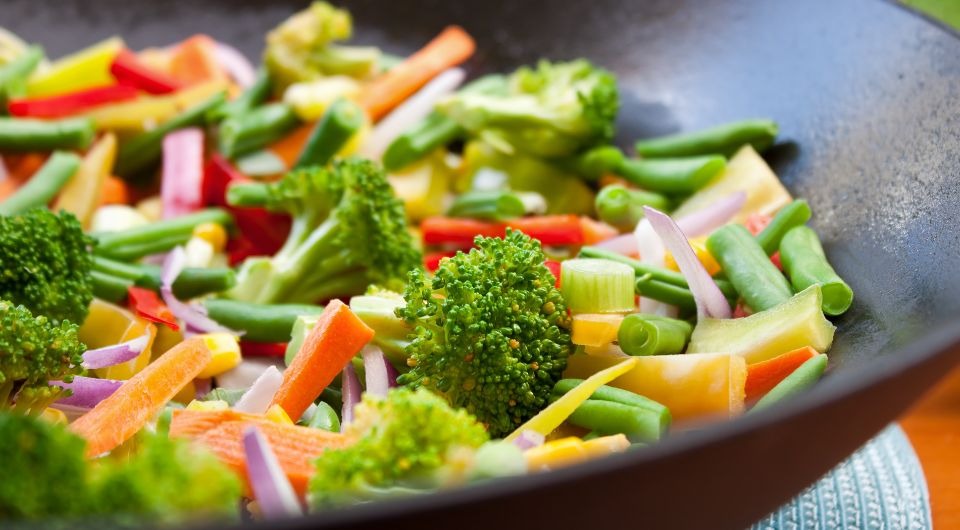
Posted on: 14 October, 2024
3 minute read
Your teeth chew, cut and grind food to make it easier for your body to digest and extract necessary nutrients, but that’s not where the relationship ends. As the gateway to your body, your mouth is directly affected by the food and drink you consume, and your oral health is intricately linked with your diet, nutrition and overall health.
As with any other aspect of health, good oral health depends on daily nourishment from vitamins and minerals, proteins and carbohydrates in foods. Good nutrition results in stronger teeth, healthier gums and a lower risk of oral diseases, while a poor diet can lead to problems like tooth decay, gum disease and other issues. In turn, dental problems can limit the types of foods you are able to enjoy, which can further impact on nutrition.
Dentists recommend following a balanced diet with a variety of nutrient-rich foods, but some nutrients are especially important. Read these suggestions for the best foods and drinks for oral health and what to avoid, and contact our dentists in Mt Lawley if you need more information or personalised advice.
A diet with plenty of fresh fruits and vegetables, whole grains, and good sources of protein and calcium will benefit your oral health and overall health. Here are some of the best options and alternatives.

Dairy goods like cheese, milk and plain yoghurt are high in calcium, which helps to remineralise tooth enamel and strengthen teeth and bones. They also help to balance pH levels and neutralise acids in the mouth, which helps to prevent tooth decay and erosion.
Chewing cheese can also stimulate production of saliva, which helps cleanse the mouth of bacteria that cause decay. Yoghurt also contains probiotics that can displace harmful bacteria in the mouth and lower the risk of problems like cavities and gum disease, particularly if it’s sugar free.

Leafy green vegetables like lettuce, kale, spinach and spring greens are also high in calcium and other vitamins and minerals. This includes folic acid (vitamin B9) that supports cell growth and development and lowers the risk of oral diseases. Eating them fresh or steamed rather than boiled preserves more of their nutrients, and crunchy greens in salads can help to scrub plaque off your teeth.

Besides leafy greens, other crunchy veggies like carrots and celery, and fibrous fruits like apples and pears, are natural teeth cleaners that scrub your teeth surfaces of leftover food and bacteria as you chew. They also stimulate saliva flow to reduce acidity, while also being rich in healthy vitamins and minerals like calcium, keratins and vitamin C.

Many other fruits and vegetables contain vitamin C, including capsicums, cucumbers, kiwis, pineapples, strawberries and tomatoes. Vitamin C has antioxidant properties, boosts production of red blood cells to fight infections, and supports the growth and repair of collagen and other tissues in the teeth and gums.
Broccoli is another good source of vitamin C and vitamin K, which supports bone and jaw health. Others like sweet potatoes are good sources of vitamin A, which helps to maintain the gums and other soft tissues in the mouth, as well as helping with the development of tooth enamel.

Almonds and nuts like Brazils, cashews and peanuts also help to scrape the teeth of food and plaque bacteria and to stimulate saliva. They’re also packed with calcium and other helpful vitamins and nutrients, such as phosphorus and vitamin D that assist calcium in remineralising teeth. Walnuts are also dense with oral health-enriching nutrients, from fibre and folic acid to potassium and zinc.

Most meats are high in protein and other nutrients that support oral health, particularly lean meats like poultry and fish. Fatty fish like salmon are rich in phosphorus, which is also found in tofu for a vegetarian alternative. Chewing meat also encourages saliva production and can help prevent dry mouth.

While milk is great for teeth, water is even better for helping the mouth and body to stay hydrated and cleansed of sugars and acids between meals. Water that’s fluoridated, as is the case for most tap water in Australia, is proven to offer greater protection against tooth decay and cavities. Fluoride is a naturally-occurring substance in food and water that has no associated health risks when managed at safe levels.
If you want to know more about the best foods and drink for teeth, or more information about fluoride, call our dentists today.
.jpg)
Less healthy foods and drinks don’t always need to be avoided altogether, but limiting them to occasional treats will mean less exposure to acids and a lower risk of oral health problems. For others, your dentist might be able to suggest more tooth-friendly substitutes.
It’s also important to practise good oral hygiene every day to help reduce plaque and lower your risks, and to visit the dental clinic once or twice a year for your regular check-up and preventive care.
If you need to talk to a dentist, or you’re due for a check-up, get in touch with Mount Lawley Dental so we can make an appointment for you to see one of our caring and experienced dentists. Call us today on (08) 9227 8777 or book online. We welcome patients from all nearby suburbs including Highgate, Inglewood and North Perth.